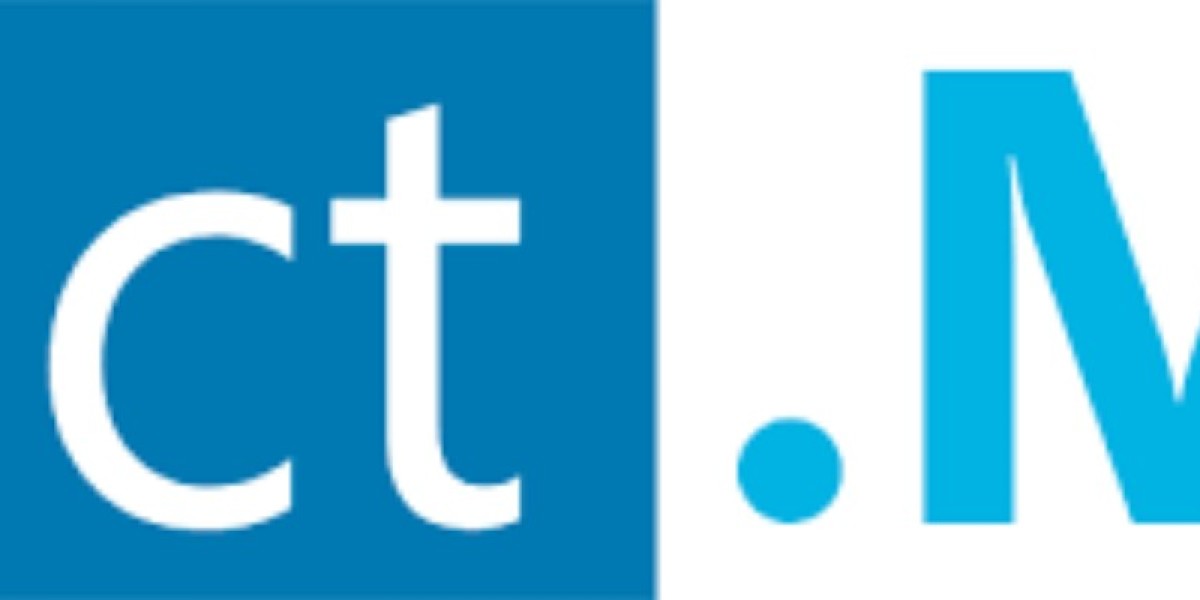Nucleic Acid Sample Preparation Market is projected to reach $11,200.5 million by 2032 from $4,213.0 million in 2022, growing at a CAGR of 10.27% during the forecast period 2022-2032. The growth in the global nucleic acid sample preparation market is expected to be driven by the increased use of nucleic acid molecules in several therapeutic areas. In addition, the increased demand for downstream applications such as next-generation sequencing (NGS) and others and the advancement in nucleic acid extraction/isolation techniques have driven the growth of the nucleic acid sample preparation market.
Market Lifecycle Stage
The global nucleic acid sample preparation market is in a progressing phase. To meet the growing need for timely diagnostic information and targeted patient treatment, several molecular procedures, including automated nucleic acid sample preparation workstations, have been developed. In addition, sample preparation is essential in precision medicine because it assures the safe and successful use of tailored therapies. The market offers a range of universal products with varied maximum throughputs, innovations, time durations, and other qualities, and companies are searching for innovative methods to distinguish themselves. Additionally, manufacturers began to produce application-specific nucleic acid purification devices and liquid handlers in recent years.
Impact
One of the main reasons for the anticipated expansion of the nucleic acid sample preparation market in the upcoming years is the rise in the use of nucleic acid molecules in several therapeutic areas. Sample preparation is typically an important phase in the accurate analysis of nucleic acids. Nuclease protection is one of the most important aspects to consider while processing nucleic acid samples. Nucleic acid extraction and isolation is the first stage in the area of molecular biology research, followed by recombinant procedures.
Impact of COVID-19
In December 2019, Wuhan, a city in the Hubei region of China, was the site of the first detection of the COVID-19 outbreak. Following the classification of COVID-19 as novel pneumonia due to a cluster of unexplained pneumonia cases, efforts to pinpoint the culprit causing the outbreak and outline its genomic sequence got underway right once. The virus has already spread to every country on the globe, and researchers, governments, and business leaders are working to find answers to the crisis at a scale and speed that has never been seen. Testing for SARS-CoV-2 in the populace is one of the main steps that has been put into place globally, among many other measures used to stop the spread of the disease. The most crucial benefit of testing is that it offers evidence of illness, enabling individuals and those they have come into contact with to take the required precautions, including quarantining, to minimize community exposure.
Although sample preparation is a technology that is utilized by innumerable laboratories all over the world to examine the genetic makeup of all living things, its application in the diagnosis of infectious diseases is now very limited. In comparison to data obtained through standard testing methods, information obtained through sample preparation using NGS technology, which determines the pathogen's genome sequence, yields a much larger body of knowledge. This knowledge can be used to develop therapeutics and vaccines, track changes in the virus as it spreads through the population, and gain a deeper understanding of patterns of transmission across time and space.
Public health experts needed to comprehend the distribution in the community in addition to the information that sequencing may provide regarding disease transmission. Through data obtained from viral sequencing, National Public Health Laboratory (NPHL) can monitor the emergence and introduction of novel variants like Omicron and put the proper public health countermeasures in place for a population or affected area. By using the NGS technology in sample preparation, researchers were able to help the scientific community to get a deeper comprehension of the alterations that may affect the pathogenicity, infectivity, and transmission of viruses. The following figure shows the workflow of detecting viruses using sample preparation.
Market Segmentation:
Segmentation 1: by Product
- Systems
- Consumables
- Accessories and Components
Based on product, the consumables segment in the global nucleic acid sample preparation market dominated in FY2021. This was due to the increase in the adoption of kits and reagents in this market.
Segmentation 2: by Workflow
- Sample Extraction/Isolation
- Sample Quantification
- Quality Control
- Fragmentation
- Target Enrichment
- Library Quantification
- Pooling
Based on the workflow, the global nucleic acid sample preparation market was dominated by sample extraction/isolation in FY2021. The high share associated with sample extraction/isolation in the nucleic acid sample preparation ecosystem is majorly attributed to the growing prevalence of oncology medical conditions and rising emphasis on research procedures.
Segmentation 3: by Technology
- Spin-Column Based Technology
- Magnetic-Bead Based Technology
- Other Technologies
Based on technology, the spin column-based technology segment accounted for the largest share of the global nucleic acid sample preparation in FY2021. The large share of this segment can be attributed to the increasing adoption of global nucleic acid sample preparation products, the growing demand to perform rapid and efficient extraction, and the rising need to reduce the sample-to-sample variation arising from the manual process.
Segmentation 4: by Therapeutic Area
- Oncology
- Human Genetics/Population Genetics
- Infectious Disease
- Others
Based on the therapeutic area, the global nucleic acid sample preparation market was dominated by the oncology segment in FY2021, owing to an increase in cancer cases. Sample preparation can make a big difference in the field of oncology because it offers a number of benefits in terms of sensitivity, specificity, and outcomes.
Segmentation 5: by Application
- Genomics
- Proteomics
- Other Applications
Based on application, the global nucleic acid sample preparation market was dominated by the genomics segment in FY2021. The term next-generation sequencing (NGS) refers to novel DNA sequencing methods that offer high speed and throughput and may generate a large number of sequences with a wide range of potential uses in research and diagnostic contexts.
Segmentation 6: by End User
- Academic and Research Institutions
- Pharmaceutical and Biotechnology Companies
- Clinical and Diagnostic Laboratories
- Other End Users
As of 2021, the global nucleic acid sample preparation market (by end user) was dominated by academic and research institutions. Academic institutions' contributions to the nucleic acid sample preparation market are quite advantageous. Variable kits and instruments are typically employed in research settings to evaluate possible medical and diagnostic uses.
Segmentation 7: by Region
- North America
- Europe
- Asia Pacific
- Latin America
- Rest-of-the-World
In 2021, the North America nucleic acid sample preparation market dominated the global market with a 46.99% market share, and it is expected to hold its dominance throughout the forecast period 2022-2032. However, the Asia-Pacific (APAC) region, constituting several emerging economies, is expected to register the highest CAGR of 12.01% during the forecast period 2022-2032.
Recent Developments in the Global Nucleic Acid Sample Preparation Market
- In June 2022, Hamilton Company. and Bionano Genomics created a Long String VANTAGE, a brand-new DNA extraction automation product. Ultra-high molecular weight (UHMW) DNA can be extracted with the instrument and used for optical genome mapping (OGM). As a requirement for the sample preparation workflow at Bionano Genomics, high-quality and quantity UHMW DNA extraction is required.
- In November 2022, RevoluGen, a U.K.-based genomics company, announced that it had entered into an agreement with Tecan Trading AG, a pioneer and industry leader in laboratory automated processes, for the production and supply of Tecan's 96-well filter plates for use in RevoluGen's automated Fire Monkey High Molecular Weight (HMW)-DNA extraction kits.
- In June 2021, Agilent Technologies, Inc. launched the SureSelect Human All Exon V8. This new exome design offers thorough content and current coverage of protein-coding areas from RefSeq, CCDS, and GENCODE. Additionally, it includes exons that are challenging to capture and the TERT promoter, which is neglected by competing exomes. The new design offers content flexibility to satisfy the demands of customers in three options, i.e., standard exome sequencing (Exome v8), translational research (v8 UTR Plus), and clinical research sequencing (v8 Clinical Plus).
- In August 2022, the introduction of the QIAseq Targeted DNA Pro Panels and the QIAseq UPXome RNA Library Kit, both of which have set new benchmarks in sample preparation for determining their nucleic acid sequences, allowed QIAGEN N.V. to announce the extension of its next-generation sequencing (NGS) portfolio. The time required for library preparation of DNA samples by researchers is cut in half to six hours due to the QIAseq Targeted DNA Pro Panels' enhanced chemistry.
Demand - Drivers and Limitations
The following are the demand drivers for the global nucleic acid sample preparation market:
- Increasing Use of Nucleic Acid Molecules in Various Therapeutic Areas
- Advancement in the Nucleic Acid Extraction/Isolation Techniques
- Advantages of Automated Sample Preparation Workstations
- Increasing Demand for Downstream Applications such as Next-Generation Sequencing (NGS)
The market is expected to face some limitations due to the following challenges:
- High Cost of Automated Workstations
- Rigid Regulatory Standards
Get Free Sample Report - https://bisresearch.com/requestsample?id=1438type=download
How can this report add value to an organization?
Workflow/Innovation Strategy: The nucleic sample preparation market (workflow) has been segmented into seven sub-segments, namely, sample extraction/isolation, sample quantification, quality control (QC), fragmentation, library quantification, target enrichment, and pooling. Moreover, the study provides the reader with a detailed understanding of the different applications of sample preparation in genomics and proteomics.
Growth/Marketing Strategy: Nucleic acid sample preparation is being used for genomics, proteomics, and other applications. Various companies are providing consumables and systems aid in the diagnosis of various therapeutic areas, which is also the key strategy for market players to excel in the current nucleic acid sample preparation market.
Competitive Strategy: Key players in the global nucleic acid sample preparation market have been analyzed and profiled in the study, including manufacturers involved in new product launches, acquisitions, expansions, and strategic collaborations. Moreover, a detailed competitive benchmarking of the players operating in the global nucleic acid sample preparation market has been done to help the reader understand how players stack against each other, presenting a clear market landscape. Additionally, comprehensive competitive strategies such as partnerships, agreements, and collaborations will aid the reader in understanding the untapped revenue pockets in the market.
Analyst View
According to Nitish Kumar, Principal Analyst, BIS Research, “Nucleic acid sample preparation includes consumables and systems that have been followed for the past several years. Sample preparation is typically an important phase in the accurate analysis of nucleic acids. Nuclease protection is one of the most important aspects to consider while processing nucleic acid samples. Nucleic acid extraction and isolation is the first stage in the area of molecular biology research, followed by recombinant procedures. Enzymatic digestion, mechanical and chemical disruption, and other techniques are used to isolate nucleic acids. Purification, on the other hand, entails a mixture of precipitation, chromatography, centrifugation, electrophoresis, and separation. The nucleic acid technique accelerates sample processing by decreasing nucleic acid loss and boosting the experimental process's efficiency and efficacy.”
Additionally, BIS Research also offers a dedicated and unique platform to find and access deeptech insights and updates on emerging technologies across industry verticals. Insight Monk, an AI powered deeptech search engine, is a subscription based platform that offers a library of latest market insights and updates based on emerging tech. Learn more about InsightMonk here. https://www.insightmonk.com









